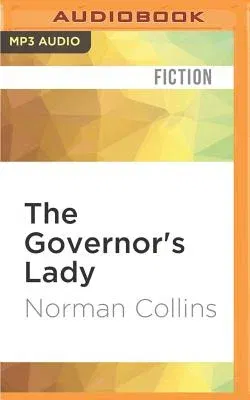Set in an off-the-map British Colony in Central Africa in the early
1930's, The Governor's Lady portrays a host of interesting characters:
young Harold Stebbs, bachelor, newly appointed to the Governor's
secretariat in Amimbo; the Governor, Sir Gardnor Hackforth, already
something of a Pro-consular legend in the Service, and tipped by The
Times for the next Viceroyship; Mr. Frith, the passed-over Acting Chief
Secretary, a rather too familiar figure at the bar in the Milner Club;
Tony Henley, the A.D.C., who has ultimately to be disowned; Old Moses,
the trusted Mimbo butler and key figure in the Residency; the socially
irresistible Mr. Ngono; Mr. Talefwa, left-wing editor of the African
Independence newspaper, War Drum; and Mr. Das, itinerant legal Counsel
called in by the Defence. Then there is the Governor's Lady herself;
twenty years younger than Sir Gardnor; somewhat withdrawn from
Government life because of an incident that occurred before Harold
Stebbs arrived; and already the subject of gossip in European, African
and Asian circles alike. There is also Lady Anne's lady-in-waiting,
Sybil Prosser, who has her own reasons for discretion.
Norman Richard Collins (1907--1982) was born in Beaconsfield,
Buckinghamshire. In his early career he worked in publishing while also
writing and publishing several successful novels. In 1941 Collins began
working at the BBC. During this time he became known for his innovative
programming which included Woman's Hour which still airs today on BBC
Radio Four. He rose to Controller of the BBC Television Service, later
leaving to co-found what is now ITV after deciding a competitor to the
BBC's monopoly was needed. Collins continued to write fiction throughout
his busy working life. Although never a full-time writer he was a fluent
and prolific author with sixteen titles and two plays to his credit
between 1934 and 1981. An autograph edition of twelve of his novels was
published during the 1960s.

